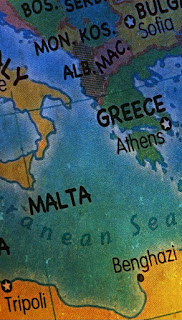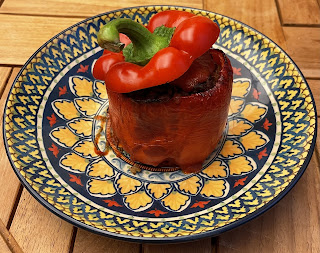READ
When I realized that the book I had purchased for Macedonia
was a 490-page novel about conjoined twins, I wasn’t thrilled. For starters,
that’s a lot of pages! And then there was the subject matter – it seemed to me
that a story about twins who were joined at their temples could only end badly.
A Spare Life, written by Lidija Dimkovska and translated by Christina E. Kramer, certainly had its tragic moments, but it turned out to be much more readable than I had expected. The story follows the lives of conjoined twin sisters -- Zlata, who is the narrator, and Srebra – who were born in the Macedonian city of Skopje. The girls are twelve years old when the novel begins, so they have had many years to become accustomed to their situation. They live with their parents in a small house with few amenities and very little love. The girls don’t even like each other very much, as they must be with each other all the time and they never seem to want to do the same thing.
Zlata and Srebra have two friends, but the other children at school or in the neighborhood either tease them or ignore them. There is a lot of extended family – in fact, there are too many grandparents, aunts, uncles, cousins, and in-laws for me to keep track of – so the girls have some sense of community around them. But nothing really helps to ease the reality that they are stuck together and can never have any privacy.
When the twins go to high school, they each want to study different things, but that’s not possible, since they must attend the same classes. They end up studying what Zlata wants – language arts. But when they begin college, Srebra chooses their course of study, which is law. They become friends with some of their fellow law students, and then life becomes very complicated. Srebra and one of the students, Darko, fall in love. Zlata finds herself just inches away from every kiss and every caress between Srebra and Darko. Things become even more uncomfortable when Darko and Srebra get married, and the three of them have to share a bed. Eventually, they decide that they must come up with the money to go to London and see if they can find a surgeon who can separate them.
Juxtaposed against the sisters’ desire to be separated from one another is the struggle taking place in their region of the world. At the beginning of the novel, Macedonia is a part of Yugoslavia, along with several other constituent republics. However, these entities are pulling away and trying to obtain their independence. When Zlata and Srebra turn eighteen years old, they vote in favor of a referendum on Macedonian independence. The parallel between this vote and the sisters’ wish to be separated is not lost on Zlata: “When two whole republics could be separated from Yugoslavia, something that had been, up to that moment, the equivalent of science fiction, why couldn’t two heads be separated by a surgeon’s knife?”
There is so much more I could say about A Spare Life, but I don’t want to give anything away. It was a novel worth reading, both for the story and for the history lesson.
COOK
There were lots of food references in A Spare Life.
Beans were eaten regularly, and for a while, I thought I’d be making a bean
dish for this blog post. But then I read a passage about the foods that Zlata
and Srebra’s mother cooked throughout the week, and found that Sunday was
stuffed pepper day. That sounded a lot more interesting than beans, so I looked
online and found a recipe for Macedonian Stuffed Peppers
on the Iron Stronghold website. The only substitution I needed to make was to
replace the ground beef with Impossible meat. This turned out to be a very
tasty and very pretty dish.
GIVE
The GlobalGiving
website listed three projects in North Macedonia, which meant I had to figure
out how North Macedonia differed from Macedonia. Apparently, there was a
dispute between the Republic of Macedonia and the Macedonian region of Greece
as to the use of the name. So in 2019, the Republic of Macedonia changed its
name to the Republic of North Macedonia.
At any rate, of the three projects listed at GlobalGiving, the one I chose was one giving trauma-informed care to orphans. North Macedonia has been working to move children out of orphanages and into foster care or group homes. This project will assist in this effort by providing: “1) Seminars in Trauma-informed Care for foster families and group home caregivers, and 2) Daily care for special needs orphans through The JOY Home Day Center, which will give 6 children support through therapies, attachment-centered play, and trauma-informed care.”
More information about this project is available at Give Trauma-Informed Care to Orphans in Macedonia - GlobalGiving.
NEXT STOP: MADAGASCAR





